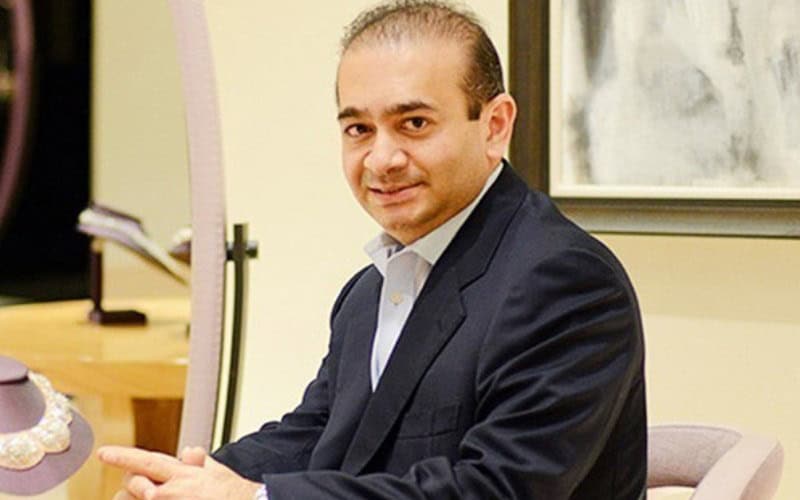New Delhi: Nirav Modi might have flown the coop and might or might not be extradited to India but has done incalculable harm to India’s diamond elite, says a new book on the man accused of defrauding the state-run PNB of over Rs 14,000 crore in his attempt to build a global luxury brand.
“In many ways, the reasons for what was once the success of the closely knit diamond elite of India have started to become its biggest stumbling block,” Pavan C. Lal, an Associate Editor with the Business Standard newspaper, writes in the very appropriately titled “Flawed” (Hachette/pp 198/Rs 399).
“Long described as a circle of a few heavy hitters across one or two ethnic groups controlling the business for generations, their deep rooted interconnections, mostly through marital alliances, maintained the opacity of the sector as compared to other trades like textiles or gold. But now that a fugitive has emerged from their midst, it remains to be seen if their communal ties will hold up or if it will be every man for himself,” the book says.
“Together, Nirav Modi and (his uncle) Mehul Choksi may have wanted to create India’s first luxury brand to go international, but the manner in which they executed their business and financed their work has done far more damage to the jewellery industry than can be comprehended,” the author writes.
Painstakingly researched, the book is based on hundreds of hours of interviews and scores of documents that include corporate filings, public documents, client presentations, newspaper articles and highly confidential internal presentations and communications.
His own interactions with Modi, Lal writes, “Revealed a most complex character – a creation of multiple cultural settings, the loss of a parent at a young age and an intense drive to prove a point and make a mark. If merely his backstory made him interesting and sought after, then news about how he had siphoned away billions from a state-run bank put him right under a magnifying glass. Not only had Modi managed to do what no other Indian jeweller had done – plant flags across the world through stores he established in the ritziest of neighbourhoods – but he’d also done it with illegal funds”, the author adds.
These illegal funds were drawn through Letters of Undertaking (LoUs) obtained by Modi’s companies from the Brady House of the Punjab National Bank (PNB) in Mumbai for over a decade and blew into what Lal describes as the “perfect storm” on January 16, 2018 when a representative of Modi’s firm requested such a document. When bank officials checked the system, they found no history of such transactions.
An LoU can be issued only after the entire loan amount sought has to be matched with collateral – which was not being done over the years thanks to the connivance of two bank officials.
The charade was blown. An FIR was lodged but before the authorities could swing into action, Modi had fled to London, where he was later arrested.
“It’s not that Modi had not been returning the money but it was obtained illegally. And some $2 billion was outstanding when the perfect storm blew up,” Lal told IANS on the phone from Mumbai, where he is based.
Why then, did Modi do it?
Noting that it was “hard to gauge his endgame”, the book says “one postulation is that he gamed the banking system but with a view to using funds to fuel his growth and expansion”.
Phase 2 of his plan was to make a long-awaited IPO happen – it never did because none of the front-line bankers would back him – “when he would make good on all his debts and interest payments to the banks, even if it meant that he would follow his uncle’s strategy in pushing valuation by rigging the stock market.
“Along the way he stumbled because someone at the bank blew the whistle and the house of cards came crashing down.
“The other postulation is that the entire business was an eyewash and the whole operation was simply a money laundering and hawala franchise for his blue chip clients. The third was that Modi was a front for moving and converting cash for political representatives across party lines and somewhere along the way he managed to rub a key player the wrong way and his funding hit the brakes.
“Whatever it may be, the ideas about the endgame prove one thing: Modi has a lot of answering to do,” Lal writes.
That, however, might take a while as in June, Modi’s bail plea was rejected for the fourth time and on October 17, his judicial custody was extended till November 11.

